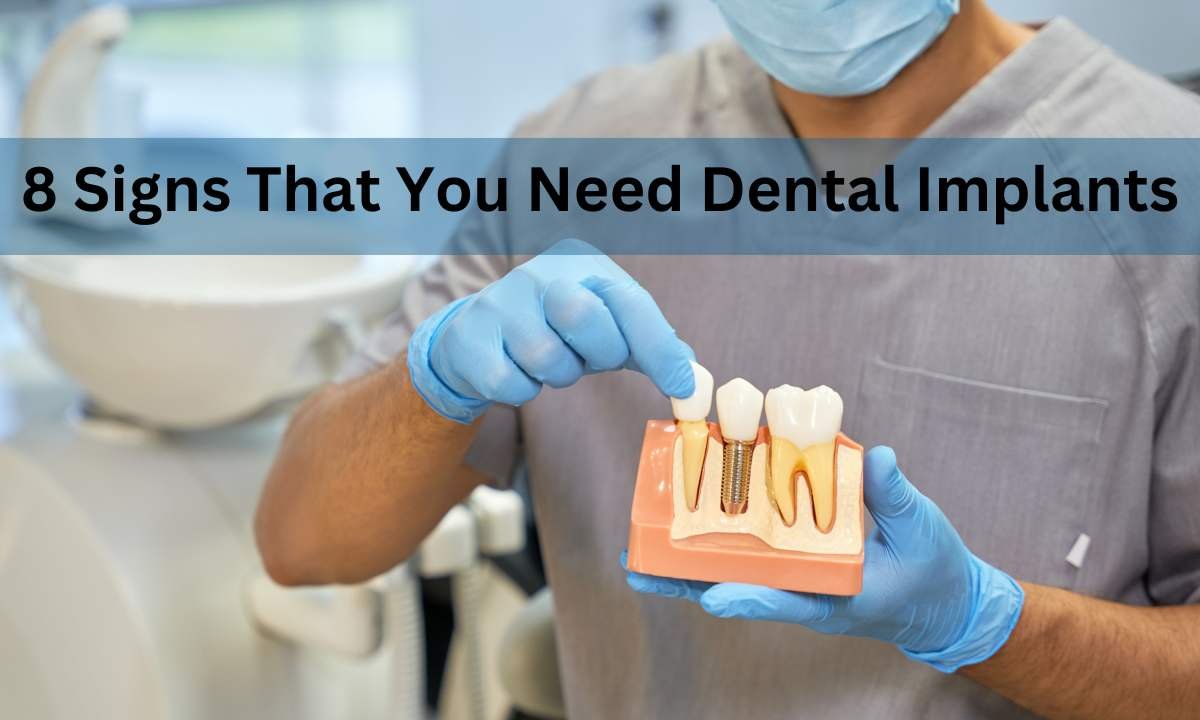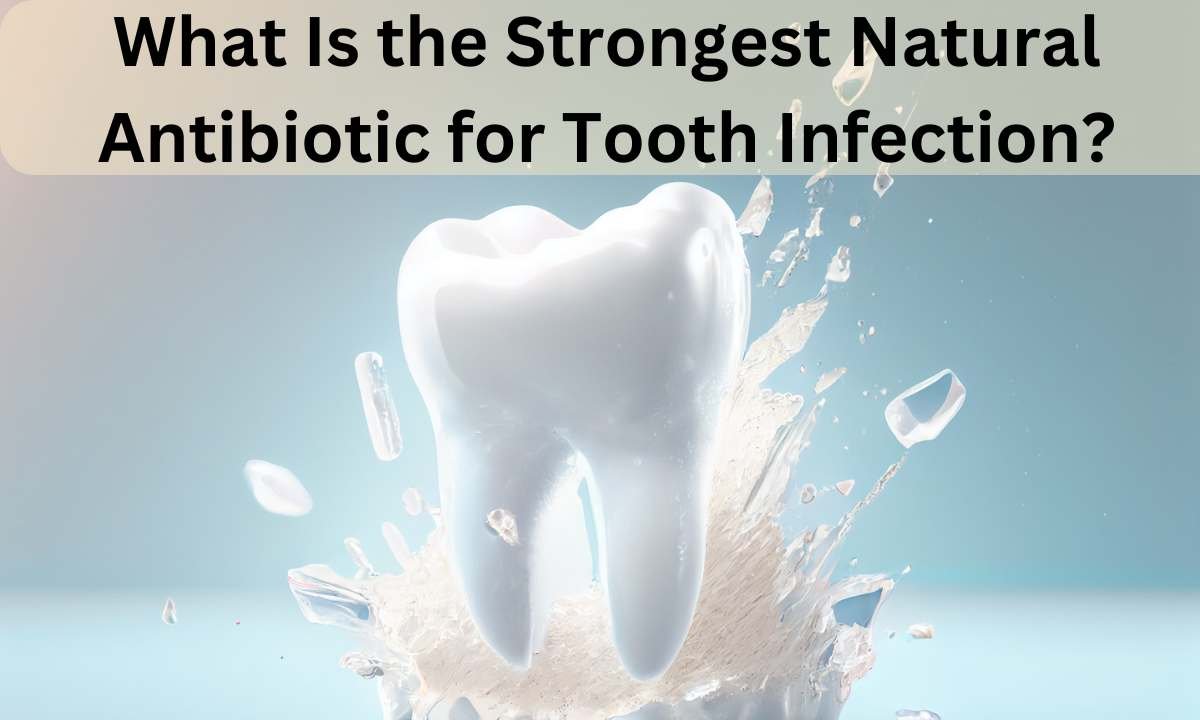8 Signs That You Need Dental Implants
Are you unsure if you need dental implants? Losing a tooth or dealing with dental issues can be a major source of discomfort. But when do you know it’s time to consider dental implants? In this article, we’ll go over eight clear signs that you may need dental implants to help improve your smile and overall oral health. By recognizing these signs, you can take the necessary steps to restore your teeth and confidence.
Dental implants are titanium posts that are surgically placed into the jawbone, where they act as artificial tooth roots. Once the implant is securely in place, a crown (the visible part of the tooth) is attached, providing a natural-looking and functional replacement tooth. This process not only restores the appearance of your smile but also helps maintain jawbone health by mimicking the stimulation provided by natural teeth.
The Benefits of Dental Implants
Dental implants offer numerous benefits beyond just replacing missing teeth. Here are a few of the most notable advantages:
- Improved Appearance: Dental implants blend seamlessly with your jawbone, making them look and feel like natural teeth. They restore your smile and help maintain the natural structure of your face, unlike dentures that may appear artificial or alter facial shape over time.
- Better Oral Health: Implants not only replace missing teeth but also prevent neighboring teeth from shifting, which helps maintain proper alignment. Unlike bridges, they don’t require altering healthy teeth, preserving your natural smile.
- Durability: Dental implants are a long-lasting solution. With proper care, they can last a lifetime, offering more stability and longevity than dentures or bridges.
- Improved Comfort: Unlike dentures, which can slip or cause irritation, implants are firmly secured in your jawbone. This makes them more comfortable for eating, speaking, and everyday use.
- Confidence Boost: Dental implants provide a significant boost in confidence, allowing you to smile, eat, and speak without worry, enhancing both your appearance and self-esteem.
Key Factors You’re A Good Candidate For Dental Implants
Understanding the advantages of dental implants is the first step. Now, let’s look at the main factors that can help identify whether you’re a suitable candidate for the procedure. The dental implant procedure typically involves several steps:
- Step 1 is Consultation: Your dentist will evaluate your oral health and determine if you’re a good candidate for implants.
- Step 2 is Implant Placement: The implant post is surgically placed into the jawbone.
- Step 3 is Healing Period: Over the next few months, the implant fuses with the bone in a process called osseointegration.
- Step 4 is Abutment Placement: Once the implant has fused with the bone, an abutment (connector piece) is placed on top of the implant.
- Step 5 is Crown Placement: Finally, a custom-made crown is attached to the abutment, completing the implant.
Now after having an understanding of the procedure, you just need to know What are the 8 signs that determine whether you need a dental implant, these are here as under:
1. Missing One or More Teeth
The most obvious sign that you need dental implants is missing teeth. Whether due to injury, decay, or age, missing teeth can impact more than just your appearance. Gaps in your smile can lead to issues with chewing and speaking, as well as cause nearby teeth to shift out of place. If you’ve been avoiding smiling in photos or covering your mouth when you speak, it’s time to consider dental implants. They are designed to seamlessly replace missing teeth and restore both function and aesthetics.
2. Difficulty Chewing or Eating
Do you find yourself avoiding certain foods because they’re difficult to chew? Maybe you’re struggling to eat harder foods like apples or steak. This can be a sign that you need dental implants. Missing or damaged teeth can make it challenging to chew properly, which can affect your overall nutrition and health. Implants can help by providing a strong, durable foundation for artificial teeth, allowing you to enjoy your favorite foods again without discomfort.
3. Bone Loss in the Jaw
Did you know that missing teeth can lead to bone loss in your jaw? When you lose a tooth, the jawbone no longer receives the stimulation it needs from the tooth root. Over time, this can cause the bone to deteriorate, leading to a sunken or aged appearance. Dental implants can help prevent bone loss by acting as an artificial tooth root, stimulating the jawbone and maintaining its strength.
4. Loose or Ill-Fitting Dentures
If you currently wear dentures and they frequently slip or feel loose, it could be time to consider dental implants. Loose dentures can cause discomfort, make it hard to speak, and even lead to embarrassing moments if they move while you’re talking or eating. Implants provide a more stable solution, anchoring dentures securely in place so you can enjoy a worry-free smile.
5. Severely Cracked or Broken Tooth
Not every cracked or broken tooth needs to be removed, but when the damage is too severe for a filling or crown to fix, a dental implant may be the best solution. Severely damaged teeth can leave the roots exposed, leading to pain, infection, or even further damage to surrounding teeth. Dental implants provide a long-lasting and reliable replacement, ensuring your oral health remains intact.
6. Signs of Infection or Tooth Decay
Infections and tooth decay that go untreated can result in the need for tooth extraction. If your dentist recommends removing a tooth due to extensive decay or infection, a dental implant may be the ideal replacement. Not only do implants help restore your smile, but they also prevent future dental problems, such as shifting teeth or bite issues, that could arise from leaving a gap.
7. Tooth Replacement After an Accident
Accidents happen, and sometimes they result in the loss or damage of a tooth. If you’ve suffered trauma to your mouth and lost a tooth, a dental implant can be a great way to restore your smile quickly and effectively. Unlike temporary solutions, dental implants are a permanent replacement that mimics the look and function of a natural tooth.
8. Sunken Facial Appearance
Have you noticed a sunken or aged look on your face? This can happen when teeth are missing, and the jawbone begins to shrink. The result is a loss of facial structure, making you look older than you are. Dental implants help preserve your facial structure by maintaining the strength and volume of your jawbone, giving your face a more youthful appearance.
Conclusion
Recognizing the signs that you may need dental implants is crucial for maintaining your oral health and quality of life. Whether you’re dealing with missing teeth, loose dentures, or difficulty chewing, dental implants can provide a permanent solution. They not only restore your smile but also help preserve the structure and function of your jaw. Don’t wait, if any of these signs sound familiar, consult with your dentist to explore your options.
FAQs
Are dental implants painful?
Most patients experience minimal discomfort during the procedure, as it’s done under anesthesia. Post-procedure, some swelling and soreness are normal, but this can usually be managed with over-the-counter pain relief.
How long do dental implants last?
With proper care, dental implants can last a lifetime. Regular dental check-ups and good oral hygiene are essential to their longevity.
Can anyone get dental implants?
While most people are good candidates for dental implants, those with insufficient jawbone or certain medical conditions may need additional procedures or alternatives.
How long does the dental implant process take?
The entire process, including healing, can take several months. However, each case is different, and your dentist will provide a timeline based on your specific needs.
What is the cost of dental implants?
The cost varies depending on several factors, including the number of implants needed and your location. It’s best to consult with your dentist for a detailed estimate.
More Articles:
How Long Until a Tooth Infection Kills You? Risks and Remedies
Homarazzi: Your Go-To Guide For Pop Culture, Celebrity News, and LGBTQ+ Representation
Unlocking the Potential of HNUJCW: A Comprehensive Guide to Modern Computational Solutions














Post Comment